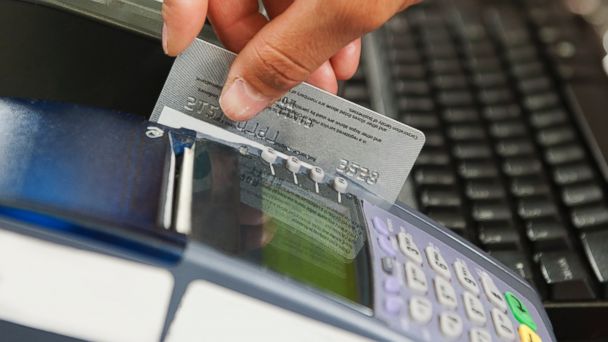Why Canada's Credit Cards Are Smarter Than US Cards
Morning Money Memo…

Getty Images
Will the massive security breach at Target lead to new chip technology and pin numbers for U.S. credit cards? Target CEO Gregg Steinhafel wants banks and retailers to approve changes.
In Europe and Canada cards already have smart chips installed and readers are used at retailers and restaurants, making it harder for thieves to profit from the sort of massive data breach that hit Target during the holiday shopping season.
The attack led to the theft of tens of millions of credit card numbers. Hackers appear to have stolen many phone numbers and e-mail addresses.
Despite previous calls to update U.S. cards, retailers and banks have feuded for years over card-swipe fees and the cost of making security upgrades.
"Computer networks are vital to American capitalism and society, but they remain surprisingly vulnerable to thieves and hijackers," says an editorial in today's Washington Post. The newspaper, owned by Amazon CEO Jeff Bezos, says "Congress must now get serious about cybersecurity. The private sector has much at stake but may not be able to cope on its own."
A South Texas police chief says two Mexican citizens who were arrested at the border used account information stolen during the Target security breach to buy tens of thousands of dollars' worth of merchandise. But a federal official said later there currently was no connection between the arrests and the retailer's credit card data theft.
Asked about the arrests, a Target spokeswoman said the investigation was active and ongoing. McAllen Police Chief Victor Rodriguez says the pair had used fraudulent cards containing the account information of South Texas residents to make purchases at Best Buy, Wal-Mart and Toys R Us. McAllen police began working with the Secret Service after a number of area retailers were hit with fraudulent purchases last week.
Yahoo is still America's most visited website, according to numbers from comscore.com. The report comes as Yahoo struggles to increase advertising growth. Google's search engine, AOL and Faceback all lagged behind Yahoo.
It's back to work for traders on Wall Street after the long holiday weekend. There are a slew of earnings reports due out today. Stock futures rose this morning after overnight gains on Asian markets. China's central bank pumped more credit into the system after concerns about slowing growth in the world's second largest economy.
Business is bad for Sochi games. With less than three weeks to go until the opening ceremony at the Winter Olympics, hundreds of thousands of tickets remain unsold, raising the prospect of empty seats. There are signs that many foreign fans are staying away, turned off by terrorist threats, expensive flights and hotels, long travel distances, a shortage of tourist attractions in the area, and the hassle of obtaining visas and spectator passes.
"Some people are scared it costs too much and other people are scared because of security," senior International Olympic Committee member Gerhard Heiberg of Norway told The Associated Press. Sochi organizers announced last week that 70 percent of tickets have been sold for the games, which run from February 7-23. But it's not clear whether the remaining 30 percent of seats will be filled.
Richard Davies Business Correspondent ABC News Radio abcnews.com Twitter: daviesnow